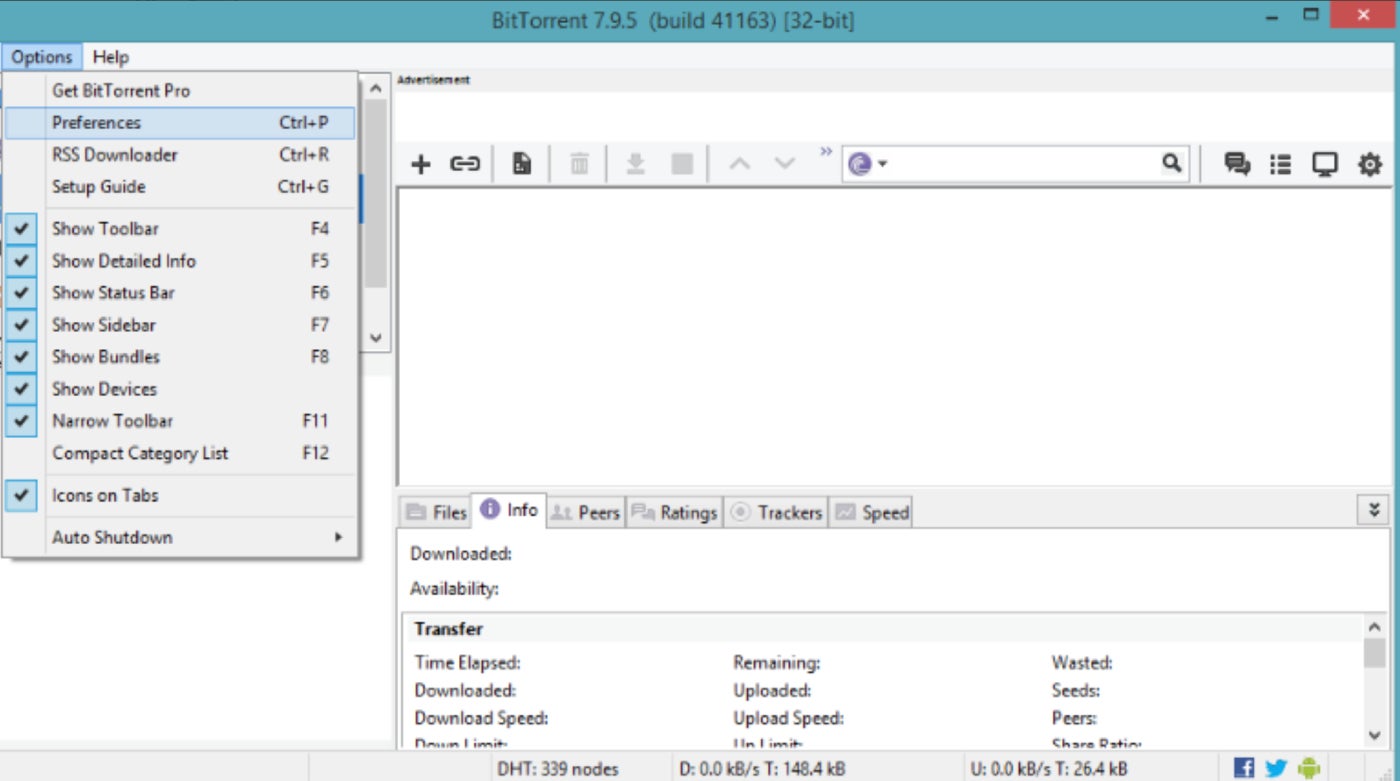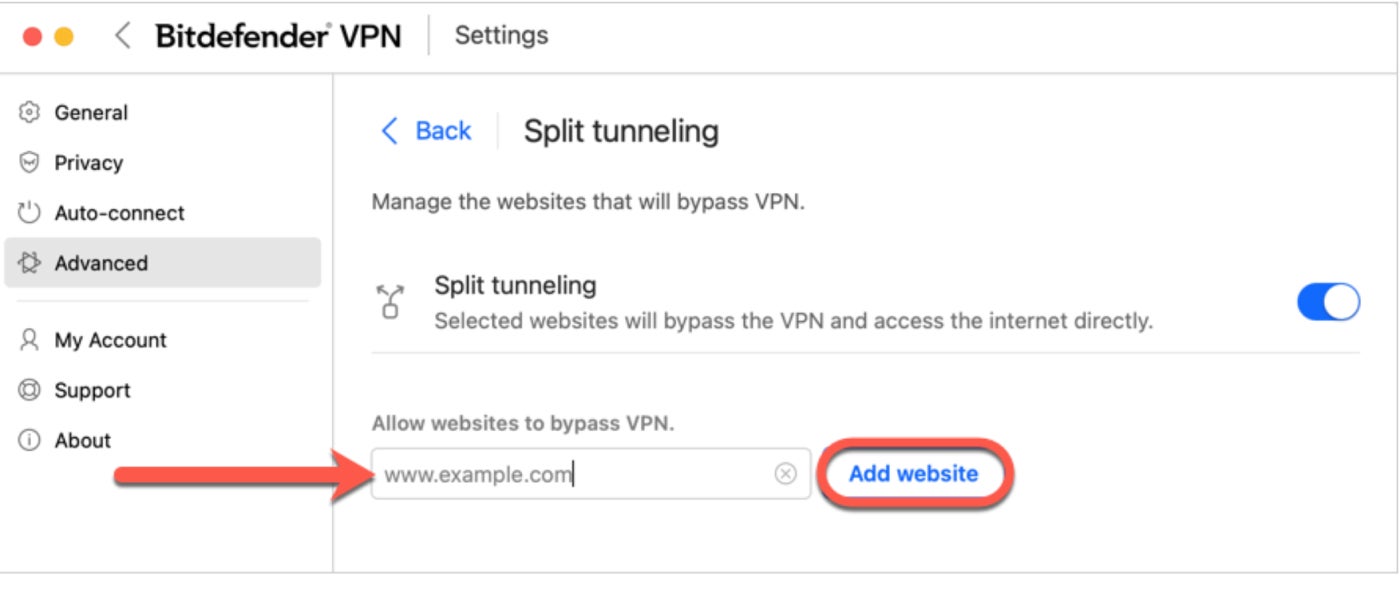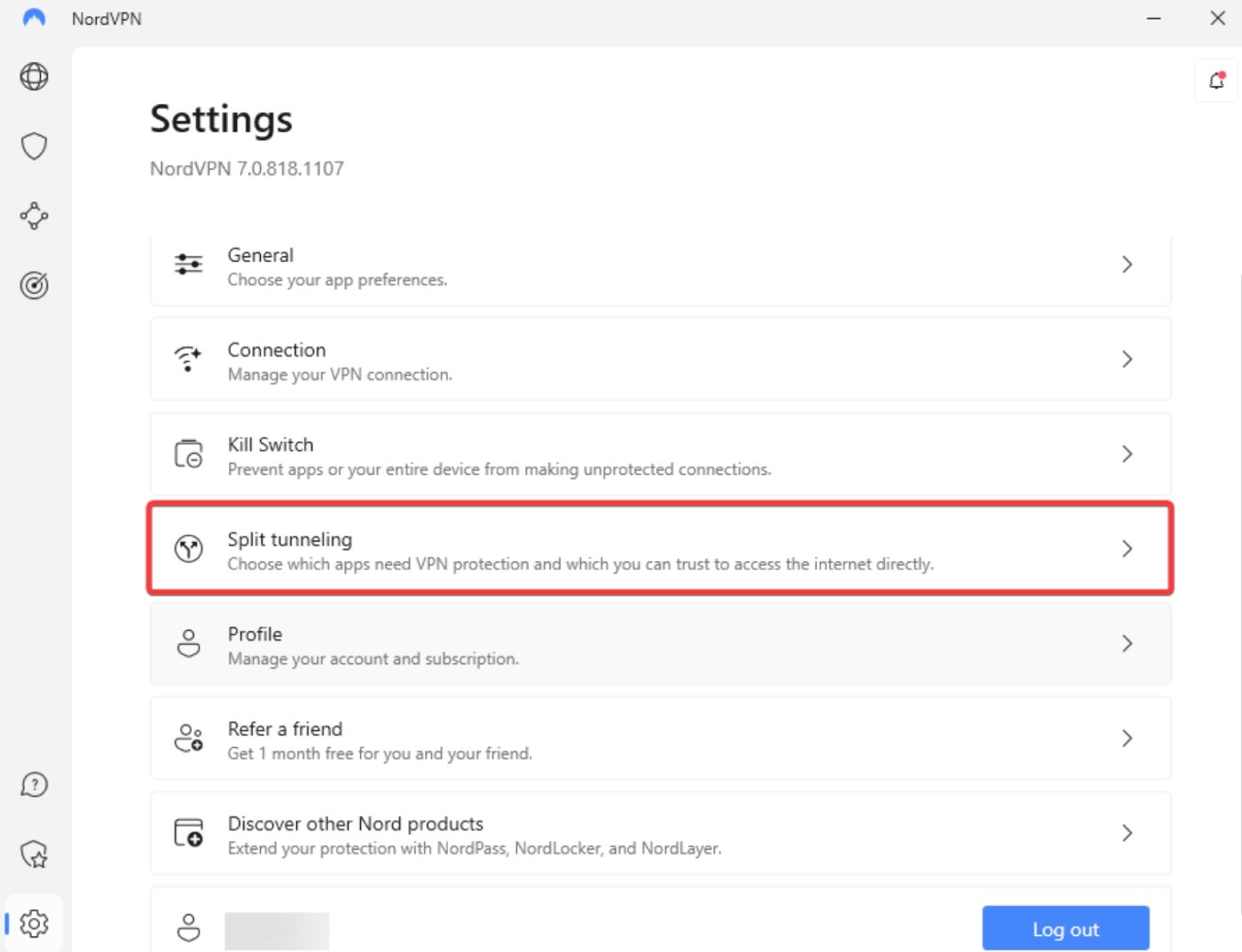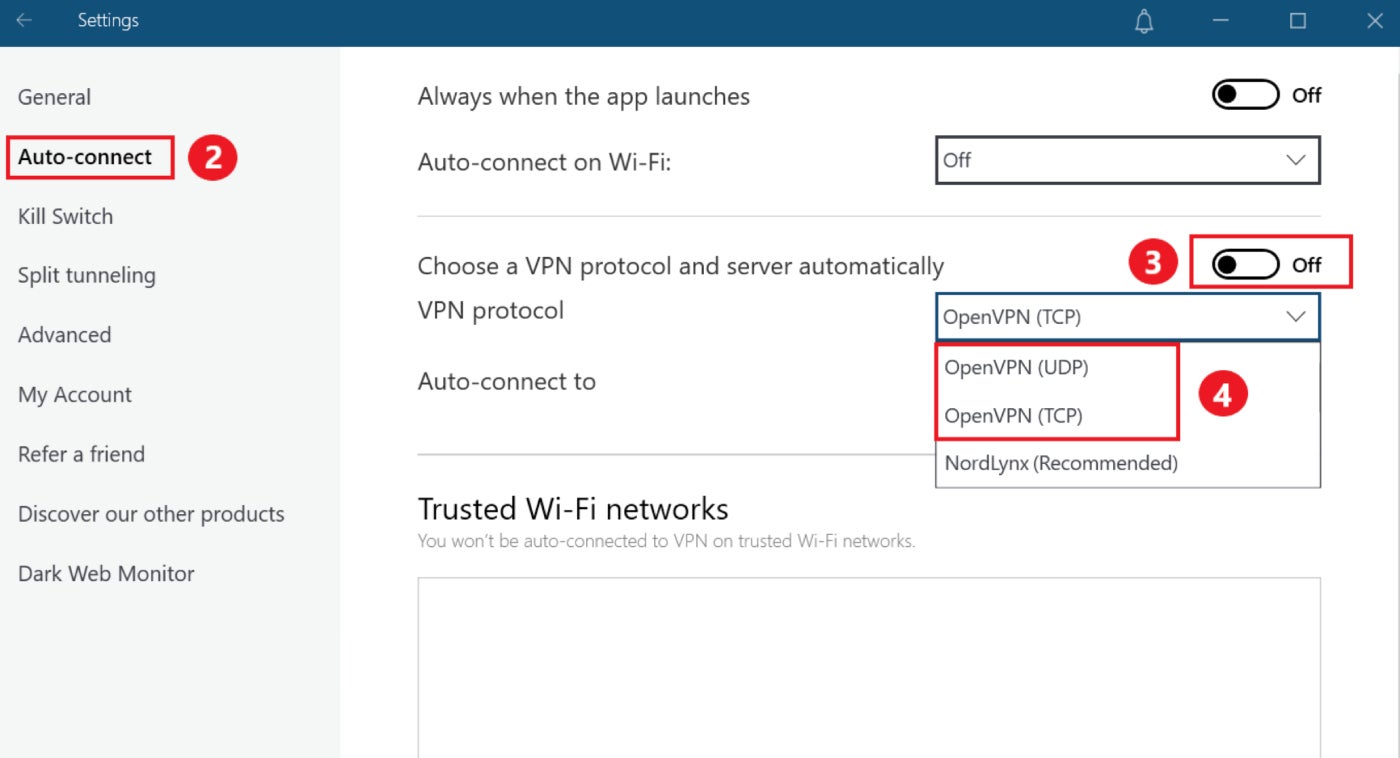Anyone who understands how the internet works would tell you to get a virtual private network if you want to maintain some elements of privacy and security while surfing the internet. But how do you know which VPN to use?
I’ve used and reviewed several VPNs in recent years and can say for sure that the best way to make that choice is to compare top VPN service providers — which is what we will be doing with Bitdefender VPN and NordVPN in this article.
SEE: 10 Myths About Cybersecurity You Shouldn’t Believe (TechRepublic Premium)
Bitdefender is a Romania-based cybersecurity firm offering VPN services as a standalone solution as well as an option to include it in its broader cybersecurity offerings, while NordVPN is a Lithuania-based VPN services provider known for its torrenting features and competitive speeds.
- Bitdefender: Best for streaming and torrenting, with features to bypass geo-restrictions and access popular platforms like Netflix, Hulu, BBC iPlayer and Disney+.
- NordVPN: Best for users seeking an affordable VPN solution, especially if they are already using other Bitdefender cybersecurity products.
Both offer robust features, but here is a breakdown of how they compare.
Bitdefender VPN vs NordVPN: Comparison table
This table sums up the core features available in both VPN services.
| Feature | Bitdefender VPN | NordVPN |
|---|---|---|
| Server locations | 50+ countries | 111 countries |
| Simultaneous connections | 10 devices | 10 devices |
| Servers | 4,000 | 6,000+ |
| Encryption standard | AES-256 | AES-256 |
| No-logs policy | Yes | Yes |
| Protocols | Catapult Hydra | NordLynx, OpenVPN, IKEv2/IPsec |
| Kill switch | Yes | Yes |
| Split tunneling | Yes | Yes |
| Pricing | Starts at $3.33/month when billed annually | Starts at $3.69/month for a 2-year plan |
NordVPN and Bitdefender pricing
Both VPN providers offer competitive plans tailored to different user needs and budgets.
- Bitdefender VPN plan starts at $3.33/month (billed annually) or $6.99 for a monthly billing cycle.
For NordVPN, the pricing structure is broader and covers the following plans:
- Basic: Starts at $3.69/month for 2-year plan; $4.59/month/year; $12.99/month for monthly plan.
- Plus: Starts at $4.69/month for 2-year plan; $5.49/month/year; $13.99/month for monthly plan.
- Ultimate: From $6.69/month for 2-year plan; $7.49/month/year; $15.99/month.
While Bitdefender offers a seven-day free trial for its Premium VPN, NordVPN does not offer a free trial. Both VPNs offer a 30-day money-back guarantee.
NordVPN vs Bitdefender: Feature comparison
Below is a more in-depth guide and analysis of both VPN solutions
Streaming and torrenting support
Winner: NordVPN
NordVPN and Bitdefender VPN cater to different priorities as far as streaming and torrenting are concerned.
NordVPN can unlock popular platforms like Netflix, Hulu, BBC iPlayer and Disney+, allowing you to bypass geo-restrictions and access your favorite content anywhere. Bitdefender, on the other hand, offers more limited streaming support, primarily for BBC iPlayer and YouTube.
SEE: NordVPN vs. ExpressVPN: Which VPN Is Best? (TechRepublic)
For torrenting, both VPNs are viable options. While Bitdefender allows torrenting on all its servers, you may experience DNS leak issues during torrenting. NordVPN, on the other hand, works well for torrenting and offers a significant advantage with over 4,500 specialized servers. Again, NordVPN also works with BitTorrent and other peer-to-peer platforms.
So, if streaming and torrenting are your primary concerns, NordVPN’s wider platform access and extensive server coverage make it the clear winner.

Security and privacy
Winner: NordVPN
NordVPN and Bitdefender VPN both run on AES-256-bit encryption, which is largely considered the industry standard for providing secure internet traffic. They also offer kill switch functionality to prevent data leaks in case your VPN connection drops, split tunneling and ads/trackers blocker feature. However, the only difference here is that with the NordVPN kill switch function, you can customize for specific apps, while you can’t do the same on Bitdefender.

Beyond the above security features, NordVPN offers several advanced security features that Bitdefender lacks, such as double VPN servers for an extra layer of encryption, obfuscated servers, and RAM-only servers that don’t store any data on hard drives. Additionally, NordVPN has undergone third-party audits of its no-logs policy, while Bitdefender’s security has not been independently audited.

Server locations and simultaneous connections
Winner: NordVPN
Bitdefender VPN provides more than 4,000 servers across over 50 countries, which is not up to par with top VPN providers like ExpressVPN and Surfshark.
On the other hand, NordVPN boasts a network of over 6,300 servers spread across 111 countries, providing more options for users.
SEE: Surfshark vs. NordVPN: Which VPN Is Better in 2024? (TechRepublic)
In terms of simultaneous connections, both VPNs support up to 10 devices, allowing you to secure multiple devices at once, including your smartphone, tablet and computer. However, I found out Bitdefender VPN cannot run on a router, which gives NordVPN the edge on this metric.
VPN Protocol
Winner: NordVPN
NordVPN and Bitdefender VPN offer different VPN protocols. NordVPN offers multiple protocols, including NordLynx (based on WireGuard), which provides fast speeds and strong security. It also employs OpenVPN, a widely used protocol, and IKEv2/IPsec, which is fast, stable and ideal for mobile devices.
In comparison, Bitdefender VPN solely relies on its proprietary Catapult Hydra protocol, which is based on OpenVPN TLS.
SEE: Free VPN vs Paid VPN: Which One Is Right for You? (TechRepublic)
NordVPN’s use of the modern WireGuard-based NordLynx protocol, along with the tried-and-tested OpenVPN, gives it an advantage in terms of speed, reliability and security options. The lack of open-source audits for Bitdefender’s Hydra protocol raises some concerns about its trustworthiness compared to more established protocols.

Figure D: NordVPN protocols
Bitdefender VPN pros and cons

Pros
- Affordable pricing plans.
- Allows torrenting on all servers.
- It can come with other Bitdefender products or be downloaded as standalone software.
- Independently audited.
- Rich community for both Mac and Windows users.
Cons
- No dedicated Linux app.
- Unblocks only a few streaming services.
- No Chrome extension.
- App freezes when downloaded on a Mac.
NordVPN pros and cons

Pros
- Extensive global server network.
- Reliable streaming and torrenting support.
- Robust security features with an audited no-logs policy
- Wide range of platform compatibility.
- Offers Incogni feature — a personal data removal tool.
- Dedicated IP.
- Flexible pricing options.
Cons
- More expensive than Bitdefender.
- Basic plan may be too limited in features.
- Dedicated IP feature comes at an extra cost.
Should your organization use NordVPN or Bitdefender?
The choice comes down to specific VPN preferences needed in your organization.
If your organization prioritizes affordability and seamless integration with existing Bitdefender security solutions, you may find Bitdefender VPN (not the standalone software) an attractive option. Its lower pricing plans and compatibility with other Bitdefender products can streamline deployment and management within your existing ecosystem.
However, for organizations with more demanding security and privacy requirements, I’ll recommend NordVPN due to its advanced features. In addition to that, NordVPN’s wider server network can also be a valuable asset if your business has remote teams with specific content access needs scattered wide and near.
For more information on NordVPN, check out our in-depth review.
Review methodology
To provide an objective and comprehensive comparison, I thoroughly evaluated both NordVPN and Bitdefender VPN through extensive research.
Security and privacy features were scrutinized, with particular attention paid to encryption protocols, independent audit documents and user feedback on their respective community forums. Customer support responsiveness and the depth of available resources were also evaluated through direct interactions with customer support and exploration of support channels on their websites.

